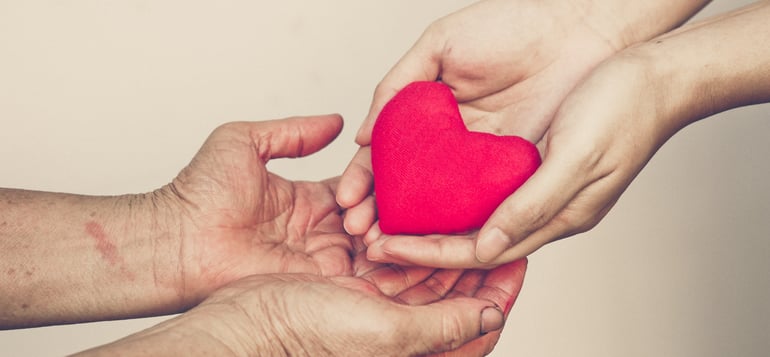
We often think of empathy as a virtue—it’s sometimes used synonymously with terms like “compassion” and “understanding.” But empathy is more complicated than that. Sometimes there’s that feel-good, tender variety that helps us connect deeply with and nurture others. Then there’s also the I feel exactly what you are feeling variety that weighs us down with feelings of unsolvable pain.
The fact of the matter is that, according to scientists, empathy alone is not a moral emotion, or heroic behavior. It’s simply the ability either to a) sense someone else’s emotional state, whether it’s a “positive” state like amusement or a “negative” one like sorrow, or b) put yourself in someone else’s shoes and see the world from their perspective. Studies have revealed that these two facets of empathy each rely on their own distinct pathways in the brain, and neither systematically predicts lending support or cooperating.
Our bodies are built to empathize, to feel physically moved and understand other’s points of view; these biological tools help us learn from and communicate with each other. While empathic strength can motivate heroism, it can also, however, increase personal distress or compel us to "check out," e.g. “Not my problem.” Especially strong, or chronic empathy for others’ suffering can paralyze us from helping or motivate efforts to escape, either physically or existentially.
What turns empathy awry? Research points to two key risks: 1) fully absorbing others’ negative emotions and reacting as if their distress or despair were our own and 2) failing to regulate, cope with, seek support, or otherwise address the inner and outer circumstances associated with our own life difficulties. To channel our empathy for others towards moral behavior, the quintessential flight attendant’s advice to “place your own oxygen mask before trying to assist others” holds true. This does not mean limiting how readily or broadly we “try to assist others”; it just means that empathy requires a foundation of stability and balance within our own emotional lives and a clear understanding of who’s feelings belongs to who. This is perhaps more important for people whose livelihoods involve frequent and repeated contact with others’ suffering, like social workers or nurses or doctors.
So if you’re aspiring towards a more empathic you, keep the following in mind:
- Notice how your own body reacts to others’ feelings and gently usher those inner feelings towards the actions your inner hero wants to take.
- Explore your habitual thoughts and interpretations about yourself and other people and replace the suspicious, hostile, judge-y ones with trusting, self-confident, and tenacious ambitions.
The objective of empathy is not to take-on others emotions, but to attune to and internalize the felt experience of perceiving others’ emotions in a manner than preserves and enhances your own sense of safety and bolsters the strength of your own inner hero. As future technology provides more ways for us to supplement, deepen or provide a more granular incoming signal about others' emotional states, it’s still up to us to handle that signal in the most constructive, strengthening way!
If you have an idea for how to make empathy a more tangible, concrete experience for your students, there's still time to apply for a 2017 Margot Stern Strom Innovation Grant! You could be one of 12 educators to receive $2,500 in funding to bring your project to life. Submissions close on Thursday May 11 at 9:00 p.m. EST!


